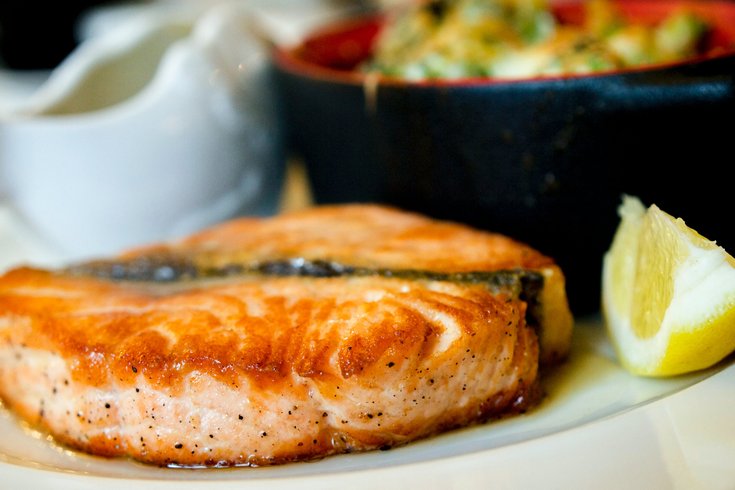
February 12, 2024
 Krisztina Papp/Pexels
Krisztina Papp/Pexels
The Atlantic diet promotes seasonal and minimally processed foods including fish, whole grains, dairy products and olive oil. Recent studies have linked the regimen to lower cholesterol levels and risk of depression.
A European diet has been drawing notice for its numerous health benefits — and for once, it's not the Mediterranean one.
The Atlantic diet, also known as the Southern European Atlantic diet, draws on the eating habits of northern Portugal and northwestern Spain. Multiple studies have touted its health benefits, including a recent analysis that found it "significantly reduced" the incidence of metabolic syndrome, which raises the risk of heart disease and stroke. Eating the Atlantic way could also reduce the risk of depression and death from any cause, while improving cholesterol and belly fat.
But what exactly does this diet entail? Fresh produce for starters, as well as a little wine.
The Atlantic diet isn't so different from the much-hyped Mediterranean diet, which is inspired by the cuisines of Greece and Italy. Both diets emphasize fresh foods with minimal processing, including vegetables, fruits and whole grains. The Atlantic diet, however, leans a little heavier on fish, seafood, potatoes and dairy products. Moderate consumption of red and lean meats, as well as eggs and wine, is also part of the regimen.
Followers of the Atlantic diet generally cook their food in olive oil and alternate between grilling, roasting, stewing and boiling. Steady water consumption also is encouraged.
An Atlantic diet pyramid, drawn in 2009, groups foods by how frequently they should be eaten: sparingly/monthly, a few times a week or daily. The first category, located at the top of the pyramid, includes fatty meats, sweets and soft drinks. The second contains eggs, seafood, dried fruits, lean beef, pork and chicken and pulses, a category of legumes that includes dried beans, peas and lentils. Foods recommended for daily use are milk, yogurt, cheese, olive oil, fruits, vegetables, breads, cereals, rice and pasta. The bottom rungs of the pyramid advise followers to "drink water abundantly" and engage in physical activity each day.
The latest study demonstrating the Atlantic diet's health benefits was published last week in the Journal of the American Medical Association. Over six months, researchers assigned 231 families an Atlantic diet or instructed them to eat as they normally would. Eating Atlantic reduced the risk of metabolic syndrome, a cluster of conditions that, when they occur together, increase the risk of stroke, heart disease and type II diabetes. A person must meet three of the five criteria to receive a metabolic syndrome diagnosis:
• High blood pressure
• High blood sugar
• Excess belly fat
• Low levels of "good" HDL cholesterol
• High levels of triglycerides
The families who followed an Atlantic diet saw improvements in belly fat and HDL cholesterol, putting them at an overall lower risk for metabolic syndrome.
Other recent studies have linked the diet to a decreased risk of depression over a nearly four-year period and death from any cause among older adults in Spain. Sticking to the diet also could put followers at lower risk of having a non-fatal heart attack.
A typical breakfast in Portugal or Spain, where the diet was born, might be as basic as a cup of coffee, some fruit, yogurt and bread with butter, cheese and/or ham. Grilled fish, such as cod or salmon, with rice and potatoes could work for lunch or dinner. Additional options to rotate throughout the week include roasted beef or pork in a wine sauce with rice and veggies or a cabbage soup, such as caldo verde. And when it's time for dessert, both Spain and Portugal enjoy an almond cake.
Follow Kristin & PhillyVoice on Twitter: @kristin_hunt
| @thePhillyVoice
Like us on Facebook: PhillyVoice
Have a news tip? Let us know.